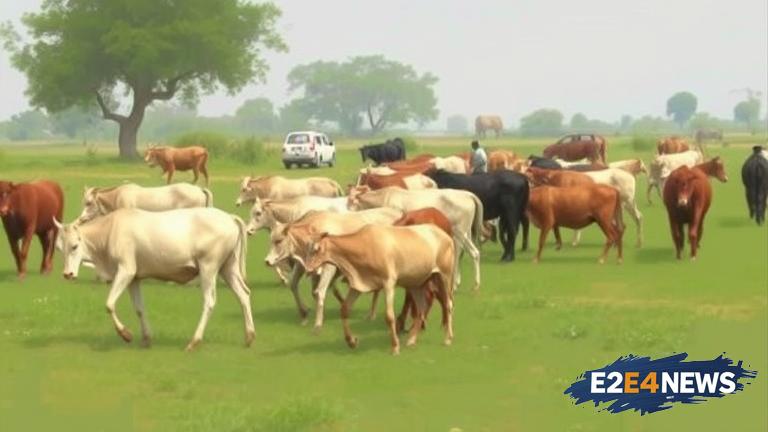The latest incident in Bauchi LG, Nigeria, has brought to the forefront the long-standing issue of clashes between herders and farmers in the region. On August 26, 2025, herders launched an attack on farmers in the area, leaving three wounded. The attack has been condemned by local authorities, who have called for calm and restraint. The conflict between herders and farmers in Nigeria is a complex issue, with roots in land ownership, resource management, and cultural differences. The herders, who are primarily from the Fulani ethnic group, have been accused of encroaching on farmland, leading to tensions with local farmers. The farmers, on the other hand, have complained of herders allowing their cattle to graze on their crops, resulting in significant losses. The Nigerian government has attempted to address the issue through various initiatives, including the establishment of grazing reserves and the implementation of policies to promote peaceful coexistence. However, the conflict persists, with sporadic attacks and reprisals reported in various parts of the country. The attack in Bauchi LG is the latest in a series of incidents that have highlighted the need for a more effective solution to the conflict. Local residents have expressed concern over the safety of their lives and livelihoods, and have called on the government to take more decisive action to address the issue. The herders’ attack on farmers in Bauchi LG has also raised questions about the role of security agencies in preventing such incidents. While the police and other security agencies have been deployed to the area, their effectiveness in preventing attacks has been called into question. The Nigerian government has also been criticized for its handling of the conflict, with some accusing it of not doing enough to address the root causes of the issue. The conflict between herders and farmers in Nigeria has significant implications for the country’s food security and economic development. The attacks on farmers have resulted in significant losses, not only for the individual farmers but also for the country as a whole. The Nigerian government has recognized the importance of agriculture to the country’s economy and has implemented various initiatives to promote agricultural development. However, the conflict between herders and farmers threatens to undermine these efforts, and has highlighted the need for a more comprehensive approach to addressing the issue. The international community has also been called upon to provide support to Nigeria in addressing the conflict. The United Nations and other international organizations have offered to provide technical assistance and support to the Nigerian government in its efforts to address the conflict. The attack in Bauchi LG has also highlighted the need for greater awareness and understanding of the conflict between herders and farmers in Nigeria. The media has been criticized for its coverage of the conflict, with some accusing it of sensationalism and bias. However, the media also has a critical role to play in raising awareness about the conflict and promoting greater understanding and empathy between the different parties involved. In conclusion, the attack on farmers in Bauchi LG, Nigeria, is a sobering reminder of the ongoing conflict between herders and farmers in the region. The Nigerian government, security agencies, and the international community must work together to address the root causes of the conflict and promote peaceful coexistence between the different parties involved. This will require a comprehensive approach that takes into account the complex cultural, economic, and historical factors that underlie the conflict.
